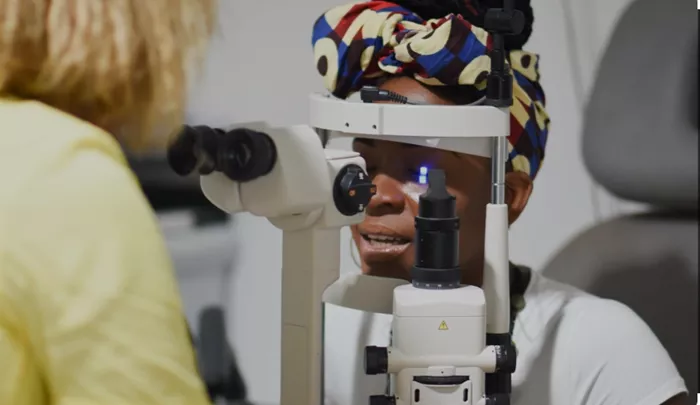Hamad Medical Corporation (HMC) is marking World Glaucoma Week by underscoring the importance of early detection and treatment of glaucoma, a leading cause of irreversible vision loss. As Qatar’s premier healthcare provider, HMC is committed to offering cutting-edge diagnostic and treatment options, ensuring that patients receive the highest level of care to preserve their vision and enhance their quality of life.
Glaucoma is a widespread eye condition that can lead to permanent blindness if left untreated. The disease occurs when the optic nerve, which connects the eye to the brain, sustains damage due to elevated intraocular pressure. This damage can occur gradually, often without noticeable symptoms in the early stages, which is why early detection is vital.
Dr. Zakia al-Ansari, consultant ophthalmologist and head of HMC’s Glaucoma Unit, explains, “Glaucoma is often referred to as the ‘silent thief of sight’ because it typically progresses without warning signs. Regular eye exams are crucial for identifying the condition early and preventing irreversible vision loss.”
At HMC, more than 500 glaucoma patients are treated each month using the latest advancements in ophthalmology. The corporation’s specialized glaucoma clinics provide a multidisciplinary approach that combines the expertise of highly trained specialists with state-of-the-art technology and individualized treatment plans to meet each patient’s unique needs.
Dr. al-Ansari emphasizes HMC’s dedication to delivering exceptional care: “We offer a full range of advanced glaucoma treatments, including specialized eye drops, innovative laser procedures, and surgical options that help manage eye pressure and prevent further damage to vision. Our focus is on early detection, effective treatment, and continuous follow-up to ensure the best outcomes for our patients.”
HMC urges the public to prioritize their eye health by scheduling regular eye exams, particularly for those at higher risk for glaucoma. Individuals over 40, those with a family history of the condition, or those who have had previous eye injuries or surgeries, as well as people of African, Asian, or Hispanic descent, should be especially vigilant. Additionally, patients with underlying conditions such as diabetes or those who are highly nearsighted or farsighted are at greater risk. HMC recommends screening at age 35 for those at elevated risk, with follow-up exams every one to three years, depending on the individual’s risk level and overall eye health.
Treatment at HMC often begins with prescription eye drops designed to reduce intraocular pressure by either improving fluid drainage or decreasing fluid production in the eye. If eye drops alone are insufficient, systemic medications, such as carbonic anhydrase inhibitors, may be prescribed to further manage the condition.
Related topic:
Doctor Discusses Common Causes of Eye Twitching and How to Manage It
Fred Hollows Foundation Hosts Women’s Eye Health Event
Can Eye Surgery Correct Astigmatism? All You Need to Know


